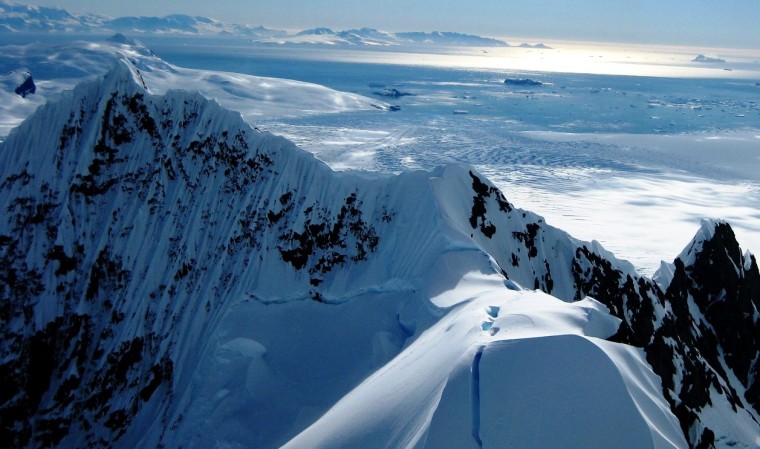Sea temperatures off the Antarctic Peninsula have cooled over the past 12,000 years, according to a study on Wednesday that may help scientists understand the impact of modern global warming on the frozen continent.
Scientists want to learn more about Antarctica because even a thaw of the fringes could raise sea levels and swamp low-lying coasts. The continent, discovered only in 1820, contains enough ice to raise world sea levels by nearly 200 feet.
"In Antarctic science we have been missing good records of sea surface temperatures near the ice sheet," lead author Amelia Shevenell of University College London and the University of Washington, Seattle, told Reuters.
"We are starting to fill in the gaps," she said of the study in the journal Nature.
The report, based on biological material in sediments, found that "surface ocean temperatures at the continental margin of the western Antarctic Peninsula cooled by 3-4 degrees Celsius (5.4 to 7.2 F) over the past 12,000 years."
The cooling, caused by shifts in the Earth's orbit around the sun, cut sea temperatures in the area to around zero Celsius in past decades.
The cooling is now being offset by climate change, the study added, with sea temperatures in recent decades rising at about the same rate as the surface of the Antarctic Peninsula — about 3.4 degrees Celsius per century.
Several Antarctic ice shelves have retreated in the past 30 years, a trend widely blamed by scientists on human emissions of greenhouse gases.
The U.N. panel of climate experts projected in a 2007 report that seas might rise by 7-24 inches this century, more if parts of Antarctic or Greenland ice sheets melted. Antarctica's ice is too deep frozen to suffer a big thaw.
Shevenell said it was not possible to work out how far temperatures would have to rise to trigger more ice shelf collapse or wider melting.
Wednesday's study also said the cooler trend was masked by shorter-term swings of between 2 and 4 degrees Celsius, apparently linked in the past 2,000 years to a new, natural influence of tropical Pacific weather patterns.
James Bendle, of the University of Glasgow, wrote in a related article in Nature that the study was a step to help work out the influence of the Pacific weather patterns, which could affect sea level rise if they intensify.
"The coastal areas of Antarctica are sites of strong air-sea-ice interactions that can affect the entire globe, but they remain the least-studied region on Earth with respect to climate variability," he wrote.
